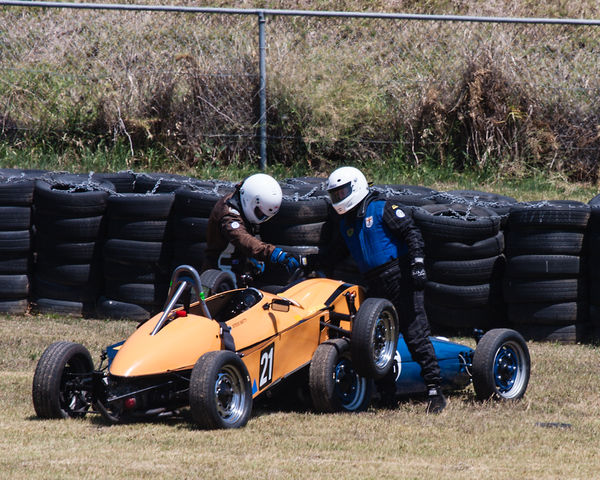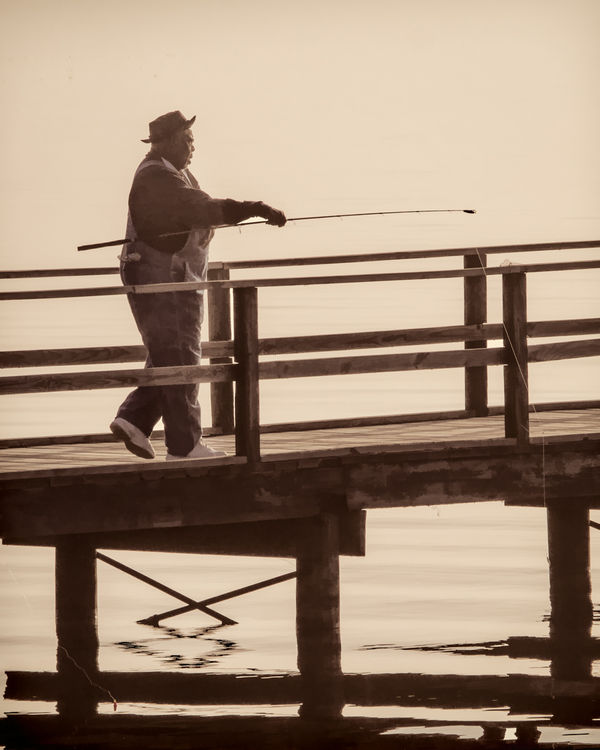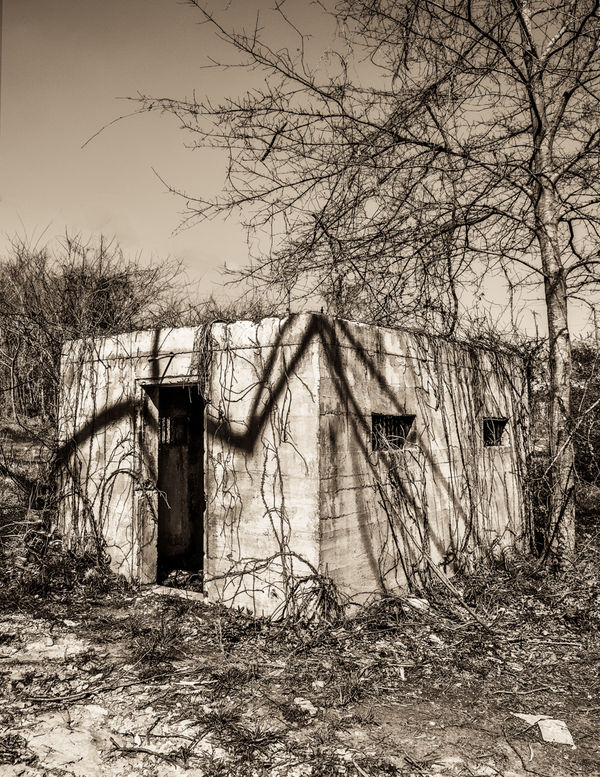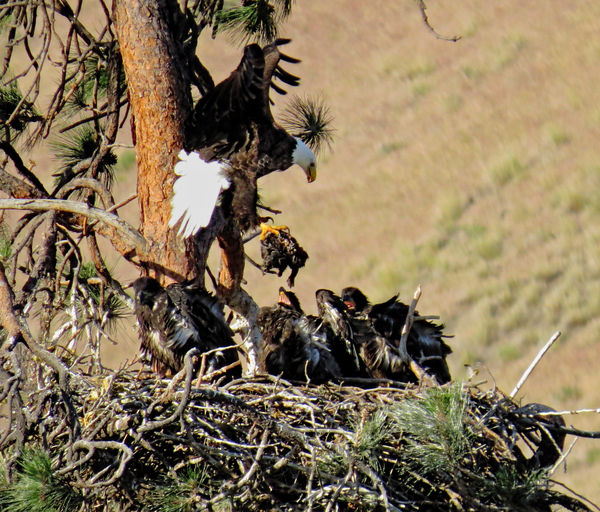Can a picture tell a story?
Jan 20, 2016 02:51:49 #
Arising from another thread Here on HHH.
http://www.uglyhedgehog.com/t-362973-2.html
Can a picture tell a story?
I think they can, especially if creating images from scratch - ie staged images -
In real life think births,death, marriage, sporting events etc, even in nature.
Here a few "found" events
#1 Nature
#2 The first time we met our grand daughter.
#3 At the motor racing, after an unplanned "event".
Feel free to comment and contribute images and thoughts.
http://www.uglyhedgehog.com/t-362973-2.html
Can a picture tell a story?
I think they can, especially if creating images from scratch - ie staged images -
In real life think births,death, marriage, sporting events etc, even in nature.
Here a few "found" events
#1 Nature
#2 The first time we met our grand daughter.
#3 At the motor racing, after an unplanned "event".
Feel free to comment and contribute images and thoughts.
Jan 20, 2016 03:37:19 #
RichardTaylor wrote:
Arising from another thread Here on HHH.
http://www.uglyhedgehog.com/t-362973-2.html
Can a picture tell a story?
I think they can, especially if creating images from scratch - ie staged images -
In real life think births,death, marriage, sporting events etc, even in nature.
http://www.uglyhedgehog.com/t-362973-2.html
Can a picture tell a story?
I think they can, especially if creating images from scratch - ie staged images -
In real life think births,death, marriage, sporting events etc, even in nature.
Richard The camera records a real life event. What happened in a 100th of a second of real life. It says nothing about what happened before the shutter was pressed and nothing about what happened afterwards. Any story attached to an image comes out of imagination. And we all are very likely to imagine quite different things.
In your track incident shot one could imagine the front car cutting across the rear car causing the collision or the rear car breaking late and running into the lead vehicle. Two totally different takes on the same picture. Two different imaginations at work with no idea who is right as we only have one image and NO story.
The grandfather shot is incredibly sweet just wonderful. But what went before this scene and indeed afterwards is open to all sorts of interpretation. All courtesy of imagination.
There seems to be a misconception that photos to be good should tell a story. So does that mean if the story it tells Billy is different to the message or story Richard got from it the picture is a failure? If we say its telling a story and it sends different messages to two people it has to be a fail by the photographer.
A photograph is a cold clinical snap shot in time of reality. Anything more the viewer has to supply and what is supplied varies from person to person.
Jan 20, 2016 08:00:49 #
A picture does not tell a story, it can't. As Billy said its an instant in time that the photographer has captured, you don't know what has happened before or after. Take for example the first pic. Are the two Noisy Mynas searching for water? Since I know the habits of these particular birds very well, I would suggest its just as likely that they are searching for small insects in and around the tap. But I would think that most would see the pic and believe that the pic was about two birds looking for water from a tap. And that is because the pic triggers associations. We see tap we think water. We see birds with big eye markings facing towards the same point we assume they are working to a common purpose. We invent the story or meaning by projecting our assumptions/associations based on the symbolic power of the elements in the pic. So we see birds hanging around a tap looking for water and we get that 'isn't that cute/clever/fascinating' feeling that goes along with it. Pics don't tell stories they evoke stories. As photographers therefore our quest is not to tell a story but rather to capture an instant which has the power to evoke a reaction in others the power to evoke recognition, empathy and associations which we the viewer bring through our life experience. Pics are triggers, no more and no less. But sometimes they can be really powerful triggers and that is worth striving for. Well that's what I think anyway.
Peter
Peter
Jan 20, 2016 08:39:34 #
I like the analogy with trigger Peter. Good word and exactly what they are quite often.
Jan 20, 2016 08:46:54 #
conkerwood wrote:
... Pics don't tell stories they evoke stories. As photographers therefore our quest is not to tell a story but rather to capture an instant which has the power to evoke a reaction in others ...Peter
I can try to tell a story with my photos, but Peter's point is excellent in that each viewer will interpret what they see differently, based on their own experiences and knowledge. It's happened a lot here :) Thanks for this topic as I'm going to re-think the concept.
(yes, I immediately thought the birds were looking for water drops!)
Jan 20, 2016 09:04:25 #
Linda From Maine wrote:
I can try to tell a story with my photos, but Peter's point is excellent in that each viewer will interpret what they see differently, based on their own experiences and knowledge. It's happened a lot here :) Thanks for this topic as I'm going to re-think the concept.
(yes, I immediately thought the birds were looking for water drops!)
(yes, I immediately thought the birds were looking for water drops!)
If you accept a snap as a trigger the different interpretations are acceptable and expected but if our intrepid snapper tries to tell a story and different viewers interpret it in different ways it cannot be considered a success.
If every viewer gets something different out of it, the photographer has failed. Each photograph communicates visual symbols that create emotion in the mind of a viewer. One measure of a photographer's ability is to use and arrange symbols in such that a very high percentage of viewers see exactly what the photographer wants a viewer to see.
(Last paragraph written originally by Apaflo who put my views into words in a clearer way than I could)
Interested in your take on this viewpoint.
Jan 20, 2016 10:11:49 #
I compiled the below to help illustrate my answer your question, Billy.
When I read these absolutes, my brain quickly tells my eyes to see, "blah blah blah."
That's because everything I've quoted below is opinion only, whether of a few or many it doesn't matter, yet these words were written in a way that slam the door to any reasoned discussion.
Regarding the first two quotes below, how does one quantify this "high percentage of viewers?" I often see near-equal splits in opinion on UHH of an image. So, are we talking the tiny handful of iconic images that hold up over decades? And how can you possibly know "if every viewer gets something different out of it..."?
On UHH there are always dozens, if not hundreds, more views than comments in every topic posted. I'd hate to mistake a tiny number of negative comments as "failure" of anything.
In Apaflo's praise of your shots, he gave no reasons behind his comments that would help others understand his viewpoint or see your images in a different way. No learning or teaching involved. And I'm only using his "critique" as another example of opinion-as-unequivocal-fact because of Apaflo's strongly worded opinions in the rest of thread :)
Apaflo in your Philippines thread:
"That will start an argument, filled with emotion, that you'll never be able to finish even though you are dead on right!
...Of your four images, the first and third are just simply wonderful."
When I read these absolutes, my brain quickly tells my eyes to see, "blah blah blah."
That's because everything I've quoted below is opinion only, whether of a few or many it doesn't matter, yet these words were written in a way that slam the door to any reasoned discussion.
Regarding the first two quotes below, how does one quantify this "high percentage of viewers?" I often see near-equal splits in opinion on UHH of an image. So, are we talking the tiny handful of iconic images that hold up over decades? And how can you possibly know "if every viewer gets something different out of it..."?
On UHH there are always dozens, if not hundreds, more views than comments in every topic posted. I'd hate to mistake a tiny number of negative comments as "failure" of anything.
In Apaflo's praise of your shots, he gave no reasons behind his comments that would help others understand his viewpoint or see your images in a different way. No learning or teaching involved. And I'm only using his "critique" as another example of opinion-as-unequivocal-fact because of Apaflo's strongly worded opinions in the rest of thread :)
Billyspad wrote:
One measure of a photographer's ability is to use and arrange symbols in such that a very high percentage of viewers see exactly what the photographer wants a viewer to see. (Last paragraph written originally by Apaflo who put my views into words in a clearer way than I could)...
Billyspad wrote:
...If every viewer gets something different out of it, the photographer has failed...
Frank2013 wrote:
You are just flat wrong about pictures not being able to tell a story...
Apaflo in your Philippines thread:
"That will start an argument, filled with emotion, that you'll never be able to finish even though you are dead on right!
...Of your four images, the first and third are just simply wonderful."
Jan 20, 2016 10:29:53 #
Photographs capture a moment in time. When a photograph captures a key, pivotal, defining, moment in time, our minds fill in the before and the after. THAT is the story. Whether real, unreal, the same as anyone else, THAT is the story.
Even in written stories, the readers imagination is required, and readers imagine different things. I would even submit that a story without imagination is not a story, then it becomes a history (or some other word that removes the fiction aspect).
Even in written stories, the readers imagination is required, and readers imagine different things. I would even submit that a story without imagination is not a story, then it becomes a history (or some other word that removes the fiction aspect).
Jan 20, 2016 10:32:43 #
Frank2013
Loc: San Antonio, TX. & Milwaukee, WI.
I agree a photo is just a 100th of a second and never claimed it could tell what came before or after. I have been trying to talk about that 100th of a second and not the before or after. Am I wrong to believe a photo can, not all do, tell the story of that 100th of a second. Take the wreck for instance. The photo tells the story of two cars involved in a wreck and two men shaking hands. Believe it or not that is a story. It does not tell the whole story, how the wreck happened or why the two men are shaking hands. Those elements are the triggers Peter speaks of that evoke the viewer to start making up their own story of which car did what and that the men seem to be good sports as they are shaking hands or whatever one would like to believe about a hand shake.
Jan 20, 2016 10:38:07 #
RichardTaylor wrote:
Arising from another thread Here on HHH. br br ht... (show quote)
This is an interesting discussion of course. And I am fairly certain that we are NOT all talking about the same thing when we ask the question in the post title.
I have to admit that I seldom think about a story when I'm out with a camera. I find moments and scenes that get my attention and I try to capture them. If asked to explain what story they tell, many of the stories are boring - "My grandson had fun skating on the glacier" or "a double rainbow over Tuolumne meadows looks awesome especially with elk all around".
Sometimes, however, I DO see a story and try to get enough of a capture that I can develop the story further in the image, but not everyone looking at it will find the same story. (I tend to personify non-human subjects, especially trees, so I will steer clear of trees for the purposes of this discussion, because I am prone to see stories in trees that no one else sees.)
So, (with no trees to cloud my mind), here are two images shot only a few hours apart and my thoughts about their "stories".
The first: a fisherman, not of the wealthy caste, is out early in the fog, going about his dawn work. It's an image I've liked and come back to over time, but the "story" is superficial.
A half hour away, sits this small-town jail. If you aren't from this town, this is a picture of a small tumbledown structure with a crazy looking shadow across it. If you live here, however, you see something different. In this jail atrocities were committed against African Americans back in the 30s-60s for crimes such as failing to get off the sidewalk when white people were approaching, or attempting to register to vote. This town still struggles with poverty, lack of opportunity, and lack of trust. This piece is titled "Shadow of Our Past" and I've sold more of its prints than any other from my little wall gallery - but in this town, where the story can be discerned.
So my point is, yes, there can be stories, and the photographer must see them and shape them, and present them to people who can "read" them in order for the story to have its intended meaning. But many images are simply appreciated for their beauty or their impact or the memories they stir up, rather than some deeper message, and that has equal value in my eyes.
Jan 20, 2016 11:26:35 #
minniev wrote:
... But many images are simply appreciated for their beauty or their impact or the memories they stir up, rather than some deeper message, and that has equal value in my eyes.
It's good to be reminded of the bigger picture so to speak... that not all is black and white, so to speak :)
Jan 20, 2016 12:10:18 #
Frank2013 wrote:
I...Am I wrong to believe a photo can, not all do, tell the story of that 100th of a second.
A story in 1/1000 second :)
For the group: do we need to know what happens next, or is this moment in time enough on its own?
Jan 20, 2016 12:58:13 #
Billyspad wrote:
Richard The camera records a real life event. What... (show quote)
Thanks for your feedback
I agree that a photograph, or a lot of artwork, is just a "moment" and if you look at stories the conventional way with a begining and and end then you are correct.
It does matter, at least for some of my photographs, if it just a slice of time that tells us something.
Yes as viewers we bring different viewpoint to the image depending on our life experiences however ask your self who is the viewing audience. If you can make the audience think about the image then that is good. Even as a hobbyst we may sometimes have "clients" and they will be the target audience.
Richard
Jan 20, 2016 13:00:05 #
conkerwood wrote:
A picture does not tell a story, it can't. As Bill... (show quote)
I like your term "evoke".
Jan 20, 2016 13:05:55 #
Linda From Maine wrote:
A story in 1/1000 second :)
For the group: do we need to know what happens next, or is this moment in time enough on its own?
For the group: do we need to know what happens next, or is this moment in time enough on its own?
It is for me Linda.
If you want to reply, then register here. Registration is free and your account is created instantly, so you can post right away.










